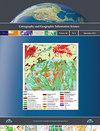采用基于地理和内容的方法,优先考虑相关和可靠的推文,用于应急管理
IF 2.4
3区 地球科学
Q1 GEOGRAPHY
Cartography and Geographic Information Science
Pub Date : 2022-09-03
DOI:10.1080/15230406.2022.2081257
引用次数: 1
摘要
灾难事件中公众发布的推文代表了及时、最新的现场数据,这些数据可能对应急响应人员有用。然而,由于Twitter数据被认为是无法核实和不可信的,因此很难确定那些可以为应急行动提供信息的可靠和相关的推文。虽然现有的计算方法既可以对大量的推文进行分类,也可以过滤与应急响应相关的推文,但利用灾难事件的上下文地理信息过滤推文一直被忽视。我们从地理角度回顾了现有的关于公众贡献数据质量的研究,然后提出了一种基于推文的相关性和可靠性来优先处理应急响应的方法。该方法的新颖之处在于两个方面:a)使用权威数据,如与灾害有关的信息和由气象观测员提供并经国家气象局验证的实地报告;b)它利用了tweet的内容以及它们的地理环境和位置。以2017年的哈维飓风为例研究,结果表明,通过遵循所提出的方法,从后确定的洪水地区发送的推文中有79%被归类为高或中等相关性和可靠性。这表明,所提出的方法可以提供用于实时应急管理的推文的准确优先级。本文章由计算机程序翻译,如有差异,请以英文原文为准。
A geographical and content-based approach to prioritize relevant and reliable tweets for emergency management
ABSTRACT Tweets posted by the general public during disaster events represent timely, up-to-date, and on-site data that may be useful for emergency responders. However, since Twitter data has been deemed to be unverifiable and untrustworthy, it is challenging to identify those reliable and relevant tweets that can inform emergency response operations. Although computational methods exist both to classify overwhelming amounts of tweets and to filter those relevant to emergency response, using contextual geographic information regarding the disaster event to filter tweets has been overlooked. We review the existing research on the quality of data contributed by the general public from a geographical perspective, and then propose an approach to prioritize tweets for emergency response based on their relevance and reliability. The novelty of the approach is twofold: a) the use of both authoritative data such as hazard-related information and on-the-ground reports provided by weather spotters and validated by the National Weather Service; and b) the fact that it leverages tweets content as well as their geographical context and location. Using Hurricane Harvey in 2017 as a case study, results show that by following the proposed approach 79% of tweets sent from post-identified flooded areas were classified as of high or medium relevance and reliability. This suggests that the proposed approach can provide an accurate prioritization of tweets to be used for real time emergency management.
求助全文
通过发布文献求助,成功后即可免费获取论文全文。
去求助
来源期刊
CiteScore
5.20
自引率
20.00%
发文量
23
期刊介绍:
Cartography and Geographic Information Science (CaGIS) is the official publication of the Cartography and Geographic Information Society (CaGIS), a member organization of the American Congress on Surveying and Mapping (ACSM). The Cartography and Geographic Information Society supports research, education, and practices that improve the understanding, creation, analysis, and use of maps and geographic information. The society serves as a forum for the exchange of original concepts, techniques, approaches, and experiences by those who design, implement, and use geospatial technologies through the publication of authoritative articles and international papers.

 求助内容:
求助内容: 应助结果提醒方式:
应助结果提醒方式:


